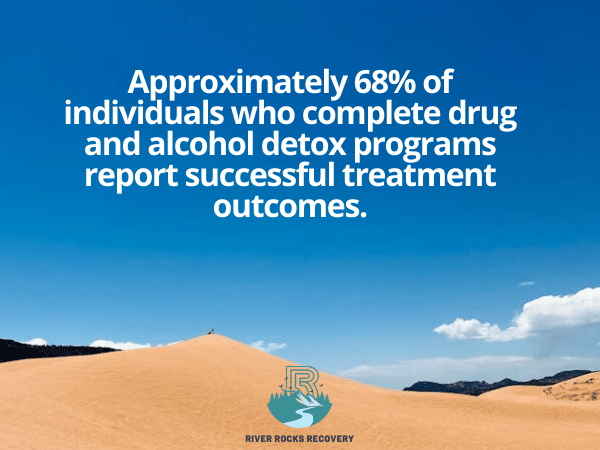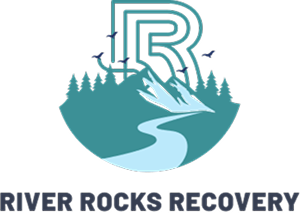Addiction is a complex disease that affects millions of people every year. For individuals struggling with substance use disorders, choosing the right treatment program is a crucial step toward recovery. Short-term rehab programs, which typically last 14 to 30 days, provide structured, intensive treatment designed to help individuals overcome withdrawal symptoms, develop coping skills, and begin their recovery journey in a short period.
At River Rocks Recovery, we offer a range of evidence-based addiction treatment programs to support individuals at every stage of recovery. Whether you’re considering short-term rehab or looking for long-term treatment options, we provide:
- Addiction Treatment Program
- Partial Hospitalization Program (PHP)
- Intensive Outpatient Program (IOP)
- Outpatient Program (OP)
- Sober Living Program
- Alcohol Rehab Treatment
- Drug Rehab Treatment
- Opiate Rehab Treatment
- Meth Rehab Treatment
If you or a loved one is considering short-term rehab, this comprehensive guide will cover:
- What short-term rehab is and how it works
- Who can benefit from short-term rehab
- The structure and phases of a short-term rehab program
- The benefits and limitations of short-term rehab
- How to transition from short-term rehab to long-term recovery
What Is Short-Term Rehab?
Short-term rehab is a structured, intensive treatment program that focuses on helping individuals stabilize and begin their recovery process. These programs last between 14 and 30 days and include medically supervised detox, therapy, and relapse prevention strategies.
Short-term rehab is often the first step in a long-term recovery journey. While it provides essential tools for sobriety, individuals typically need to transition into outpatient care, sober living, or long-term treatment programs to maintain their progress.
Who Can Benefit from Short-Term Rehab?
Short-term rehab is not for everyone, but it can be highly effective for certain individuals, including:
- People with mild to moderate substance use disorders who need structured support but do not require long-term inpatient care.
- Individuals who have completed medical detox and need additional therapy before transitioning to outpatient treatment.
- Busy professionals or caregivers who cannot commit to long-term rehab due to work, school, or family responsibilities.
- Those experiencing an early relapse who need a brief, intensive intervention to get back on track.
- People with strong external support systems, such as family and sober peer groups, who can help reinforce their recovery efforts after rehab.
However, for those with severe addiction, multiple relapses, or co-occurring mental health disorders, longer-term rehab programs may be more effective.
What to Expect in a Short-Term Rehab Program
Short-term rehab is designed to provide rapid stabilization and intensive treatment in a structured environment. Here’s what a typical program includes:
Phase 1: Medical Detox (If Necessary)
Many individuals entering rehab need medically supervised detox to safely withdraw from drugs or alcohol. The detox process typically includes:
- 24/7 medical monitoring to manage withdrawal symptoms.
- Medication-assisted treatment (MAT) to ease discomfort and reduce cravings.
- Emotional and psychological support to prevent relapse during withdrawal.
Common withdrawal symptoms treated during detox include:
- Opioid withdrawal: Muscle aches, sweating, nausea, insomnia, and cravings.
- Alcohol withdrawal: Tremors, anxiety, seizures, and delirium tremens (DTs).
- Methamphetamine withdrawal: Depression, fatigue, and mood swings.
Once detox is complete, individuals transition into active addiction treatment.
Phase 2: Therapy and Behavioral Counseling
After detox, individuals participate in comprehensive therapy to address the psychological and emotional aspects of addiction. This phase includes:
- Cognitive-Behavioral Therapy (CBT): Teaches individuals to recognize and change negative thought patterns that lead to substance use.
- Dialectical Behavior Therapy (DBT): Helps with emotional regulation, distress tolerance, and relapse prevention.
- Individual Counseling: Provides a private setting to explore personal struggles and goals.
- Group Therapy: Offers peer support, shared experiences, and accountability.
- Family Therapy: Helps rebuild relationships and improve communication with loved ones.
Phase 3: Relapse Prevention and Aftercare Planning
Before completing short-term rehab, individuals work with their counselors to:
- Identify personal relapse triggers.
- Develop coping strategies to manage cravings.
- Create a personalized recovery plan that includes aftercare options.
Continuing care is essential for maintaining long-term sobriety. Many individuals transition into outpatient programs, sober living homes, or support groups after short-term rehab.
The Benefits of Short-Term Rehab
1. Fast and Intensive Treatment
Short-term rehab provides structured, focused care that helps individuals quickly stabilize and begin their recovery journey.
2. Cost-Effective Compared to Long-Term Rehab
Since short-term rehab lasts 30 days or less, it is often more affordable than long-term inpatient programs. Many insurance providers cover short-term rehab as part of addiction treatment benefits.
3. A Good Option for Busy Professionals
For individuals who cannot take months off work or school, short-term rehab offers an effective treatment option without long-term commitments.
4. Effective for Mild to Moderate Addiction
Short-term rehab can be highly effective for those in the early stages of addiction who do not require prolonged care.
Limitations of Short-Term Rehab
1. May Not Be Enough for Severe Addiction
Individuals with severe substance use disorders or a history of relapse often need longer-term treatment to fully recover.
2. Higher Risk of Relapse Without Aftercare
Since short-term rehab is brief, individuals must commit to ongoing care to prevent relapse. Common aftercare options include:
- Intensive Outpatient Programs (IOP)
- Sober Living Programs
- 12-Step Meetings or Support Groups
3. Less Time to Address Co-Occurring Disorders
Individuals with mental health conditions (such as depression, PTSD, or bipolar disorder) may require longer treatment to manage both addiction and mental health effectively.

Transitioning from Short-Term Rehab to Long-Term Recovery
Completing short-term rehab is just the beginning. To maintain sobriety, individuals should continue with:
- Intensive Outpatient Program (IOP): A structured program offering continued therapy while living at home.
- Outpatient Program (OP): A flexible option for those who need ongoing recovery support.
- Sober Living Program: A structured, substance-free living environment for those transitioning out of rehab.
- Ongoing Therapy and Counseling: Helps individuals address emotional and behavioral challenges.
- Support Groups (AA, NA, SMART Recovery): Provides peer accountability and encouragement.
Is Short-Term Rehab Right for You?
Short-term rehab is a great option for individuals who:
- Have mild to moderate addiction.
- Need structured treatment but cannot commit to long-term inpatient care.
- Have completed detox and need brief stabilization before transitioning to outpatient care.
- Have a strong support system at home to reinforce recovery.
For individuals with severe addiction, chronic relapse, or co-occurring mental health disorders, longer-term rehab may be more effective.
How River Rocks Recovery Can Help
At River Rocks Recovery, we provide personalized addiction treatment programs designed to meet the unique needs of each individual. Whether you need short-term rehab for stabilization or long-term support for lasting recovery, our expert team is here to guide you every step of the way.
Our programs include:
- Medical Detox & Withdrawal Management – Safe, supervised care to ease withdrawal symptoms.
- Partial Hospitalization Program (PHP) – Intensive treatment with structured therapy.
- Intensive Outpatient Program (IOP) & Outpatient Program (OP) – Flexible options for continued care.
- Sober Living Program – A supportive, substance-free environment for long-term recovery.
At River Rocks Recovery, we believe recovery is possible for everyone. Let us help you take the first step toward a healthier, addiction-free life.
Conclusion
Short-term rehab can be an effective starting point for individuals seeking to break free from addiction. By providing structured treatment, therapy, and relapse prevention strategies in a focused timeframe, short-term rehab helps individuals stabilize and prepare for long-term recovery success. However, it is important to recognize that recovery does not end after 30 days—it is an ongoing process that requires continued support, commitment, and professional care.
For many, the best approach is to transition from short-term rehab into outpatient treatment, sober living, or continued therapy to maintain sobriety and prevent relapse. At River Rocks Recovery, we provide comprehensive addiction treatment programs to support individuals at every stage of their recovery journey.
If you or a loved one is struggling with addiction, don’t wait to get help. Recovery is possible, and the right treatment can make all the difference. Call River Rocks Recovery at 888.905.6281 today to speak with a recovery specialist.
FAQ About Short-Term Rehab
What is short-term rehab for addiction?
Short-term rehab is an intensive addiction treatment program lasting 14 to 30 days. It provides medical detox (if needed), behavioral therapy, and relapse prevention strategies to help individuals begin their recovery journey.
Who is a good candidate for short-term rehab?
Short-term rehab is ideal for individuals who:
- Have mild to moderate addiction and need structured support.
- Have completed detox and need a short-term transition to outpatient care.
- Are busy professionals or caregivers who cannot commit to long-term rehab.
- Have relapsed and need a short-term reset to get back on track.
What happens during short-term rehab?
Short-term rehab includes:
- Medically supervised detox (if needed) to manage withdrawal symptoms.
- Individual and group therapy to address emotional and behavioral triggers.
- Cognitive-Behavioral Therapy (CBT) and Dialectical Behavior Therapy (DBT) to teach coping strategies.
- Relapse prevention planning to prepare for life after rehab.
Is short-term rehab effective for long-term recovery?
Short-term rehab can be highly effective, but ongoing aftercare and support are essential to prevent relapse. Many individuals transition into Intensive Outpatient Programs (IOP), Sober Living Programs, or Outpatient Therapy after short-term rehab.
What are the benefits of short-term rehab?
- Fast, intensive treatment for those needing immediate support.
- More affordable than long-term rehab.
- A good option for professionals and students with time constraints.
- Effective for individuals with strong external support systems.
What are the limitations of short-term rehab?
- Not ideal for severe addiction or long-term substance abuse.
- Limited time to address co-occurring mental health conditions.
- Higher relapse risk without follow-up care.

